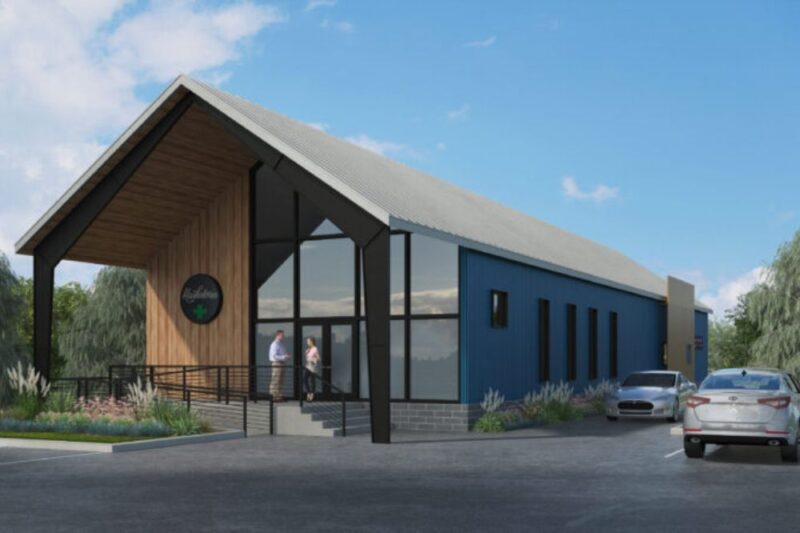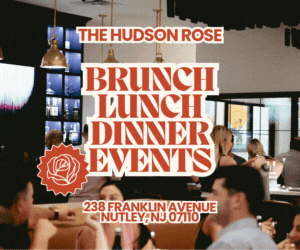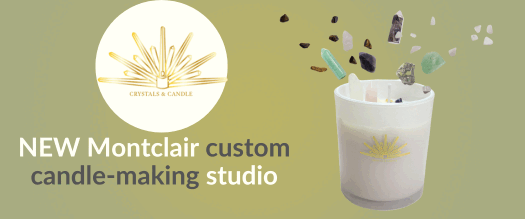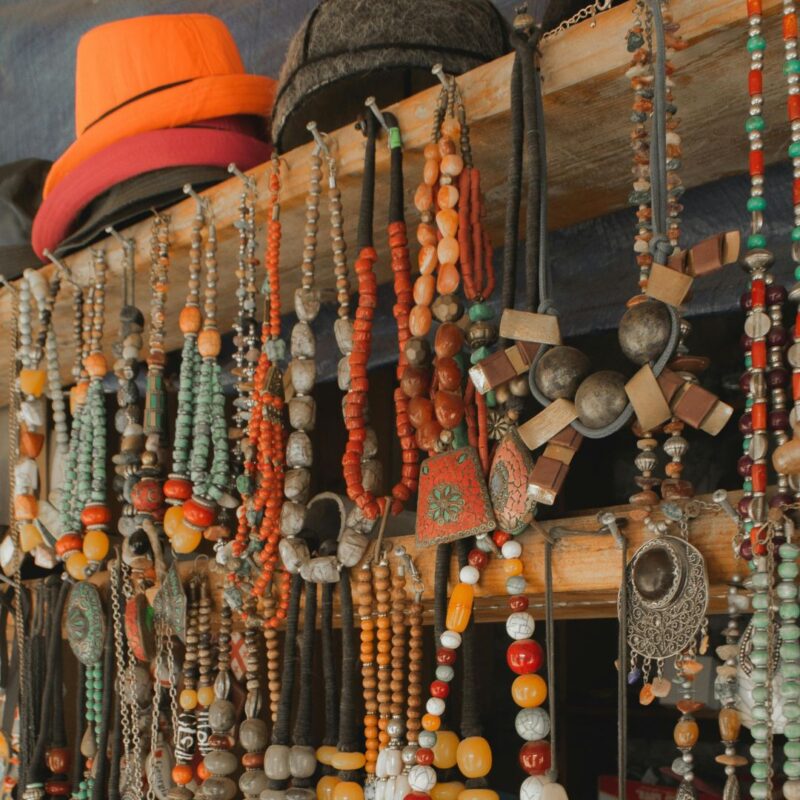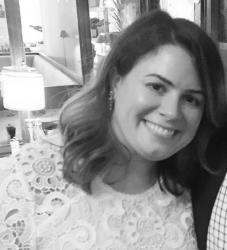It’s been over a year since marijuana was legalized in New Jersey, and very few communities have seen cannabis-based businesses open. The dual track of state and local approvals has taken a long time for many prospective business owners. But in the meantime, The Montclair Girl wanted to learn more about what New Jersey towns could look like once more cannabis-based businesses are integrated into the fabric. We got a chance to speak with architect Rachael H. Grochowski, NCARB, RA, the founder of Montclair-based architecture firm RHG A+D. Read on for more from our conversation with Rachael.
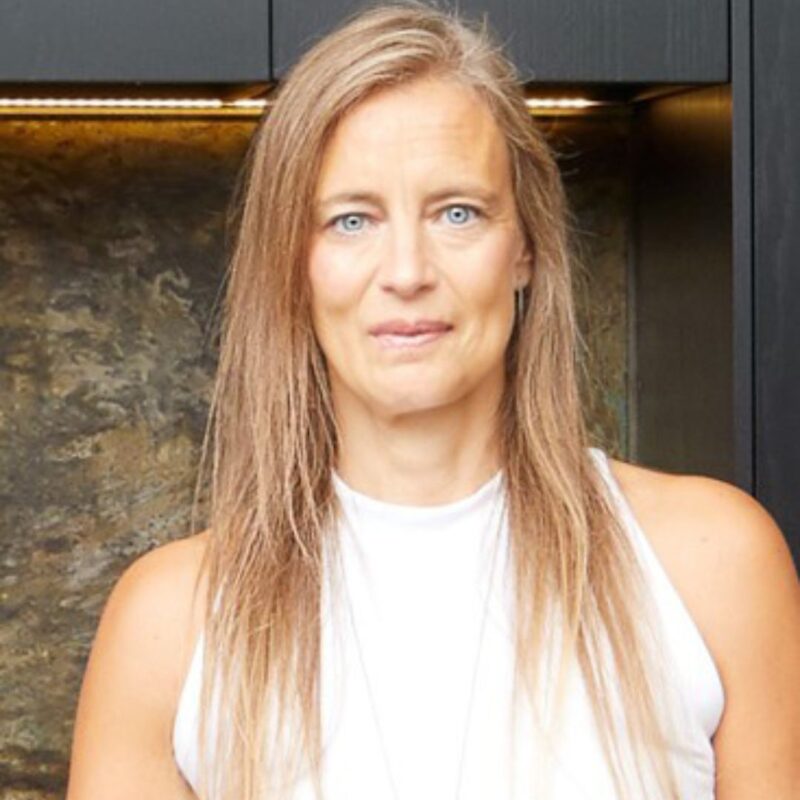
(Photo credit: RHG A+D)
About Rachael
Rachael Grochowski founded RHG A+D in Montclair in 2003. What was once a one-woman operation is now a collection of professionals focused on residential, hospitality, wellness, cannabis, retail, and community projects around the globe. Rachael lives in Montclair with her family and has raised her children in town. “When I first moved to Montclair, there were a lot of conversations about what we didn’t want here, such as big box stores,” she said. “There were a lot of conversations about what having big, national chains would do to the community’s makeup.”
Read More: Meet ‘The Cannaboss Lady’ Behind Maplewood Village’s First Woman-Owned CBD Shop
Rachael sees many parallels between the conversations about chain stores coming into a town and the incoming cannabis-based businesses. “The reality is that communities need both smaller and bigger stores to survive,” she said. A town full of amazing restaurants isn’t sustainable if the residents don’t have a place to get groceries.
In terms of ensuring a well-composed makeup of businesses in a community, Rachael says that there are already many layers of control in place. “Townships have a lot of power. They can choose what brands of cannabis they’ll allow in their community,” she said. “Within that premise, there is some control over the brand and what the purpose of the brand is. Whether it’s wellness or entertainment, the town has some control over it.”
“In most cases, a dispensary going into communities in this era intends to sell to individuals from this area,” Rachael said. “So they will be designed around the idea that it creates comfort and ease. It will be ease-ful to walk in the door. We’re not going to have a bodega vibe in the middle of Montclair, that doesn’t bring Montclair people in. It wouldn’t be successful. Nobody’s intent is to bring individuals from 20 miles away. They want them to be a neighborhood location that reflects the community.”
Future of Cannabis Businesses
Rachael grew up in Colorado and frequently visits home. On these trips, she is able to see what a more mature state-sanctioned cannabis market looks like. “I just came back from Denver, where cannabis has been legal for a long time. I was in my hometown neighborhood where I grow up. I saw a brand new dispensary. It was not a new building, used to be a drive-through Wendy’s, and it looks really nice!” she said. “There’s not a line outside, you go inside and it’s clean, the building is being used. There was a decent amount of parking, which is an issue for any kind of business in Montclair. When I went in, it felt almost spa-like. Just very fresh. It felt like a blend between a spa and a pharmacy. Kind of like the pharmacy we have on Church Street. A small, family-owned kind of vibe.”
In observing the different businesses in Colorado, Rachael sees a lot of possibilities for what can happen in New Jersey. “There’s a possibility for these stores to become a part of the community,” she said. “They can have events, it will really add to the community.” And it’s more than a business filing a vacant storefront: these companies are investing a lot of money to open their businesses in New Jersey communities, so there is a big incentive for them to have an appealing exterior and a positive customer experience. “ It’s very difficult and expensive to get a license and open a retail location,” Rachael said.
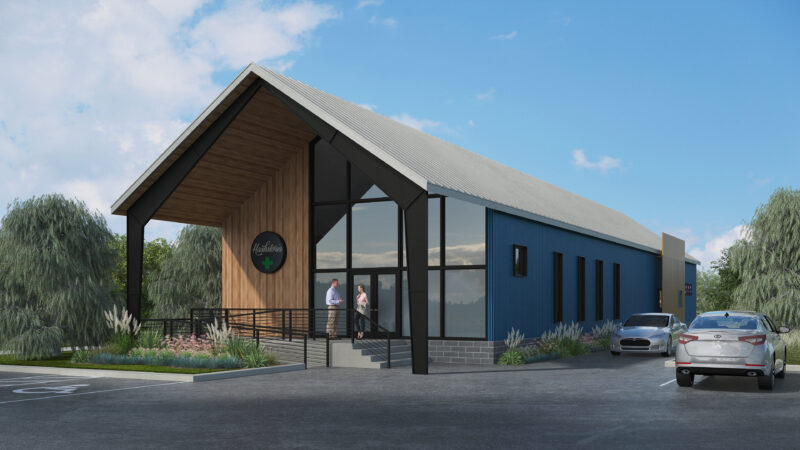
(Photo credit: RHG A+D)
Rachael says that she has been impressed by the people behind the incoming cannabis businesses. “In particular the micro businesses,” she said. “There are a number of businesses that are interested in wellness. Many of them have consult rooms, where it’s an opportunity to have a private conversation about what problems you want to solve/issues to heal with cannabis. You can discuss this with a budtender or a medical professional who can help you pick the right product. I’ve been surprised because I feel like so many, even brands that aren’t necessarily medical, or the brand name doesn’t suggest that it’s wellness, they understand that that’s what people want. Many people have come to the industry because of the wellness aspect. The big brands have more money to build out their spaces. The big brands are also much more about making money. The small brands are more about providing access to something that will help people’s wellness.
Myth-Busting
The cannabis retail businesses could look or feel like any other retail experience. There are some elements that make it like a liquor store, in that it is so heavily regulated, and others that make it more like a bank, because of the security elements. “People are spending a lot of money on these businesses,” Rachael said. “The customer experience is going to be a huge part of it.”
Several of the companies that Rachael is working with are incorporating the customer experience into the compliance aspects of this type of business. “Every state is different,” she said. “In some states, it’s much more like a pharmacy-type experience where the customer points to a product behind a counter. In NJ, you can look at it, and the salesperson talks to the customer, and get the product out from the back in a locked area. So we are really thinking about how clients will experience that. It’s both the education and what they are buying.”
Even within New Jersey, the individual townships’ regulations means things will be different from community to community. “For example, in Maplewood, there may be a dispensary where you can pull a product from a locked drawer behind the POS, but in Newark, you can’t. So you need to understand that as you are designing the space,” Rachael said. “That informs how you can display the product. It ends up being more like a jewelry store. Everything is small and everything is locked. In both jewelry and cannabis, there’s an aspect of individual service.”
See More: Hudson County Cannabis Businesses + Their Leaders: A Deep Dive
The customer experience will go into designing consumption lounges, which are still becoming legal in some parts of New Jersey. “One of the big complaints people have about marijuana is the smell, and having people consume it in a lounge eliminates that problem,” Rachael said.
But in the end, it all comes back to the consumer experience. “It’s not a dark alley exchange. Brands want you to know what you’re buying. In the end, that’s the premise,” Rachael said. “Whatever dispensary you’re walking into, they have no interest in your buying something you don’t know about. You won’t come back. The education, display, and service all come together in that. Working with the client to find the best product. That’s the goal — find the right product for the customer.”


